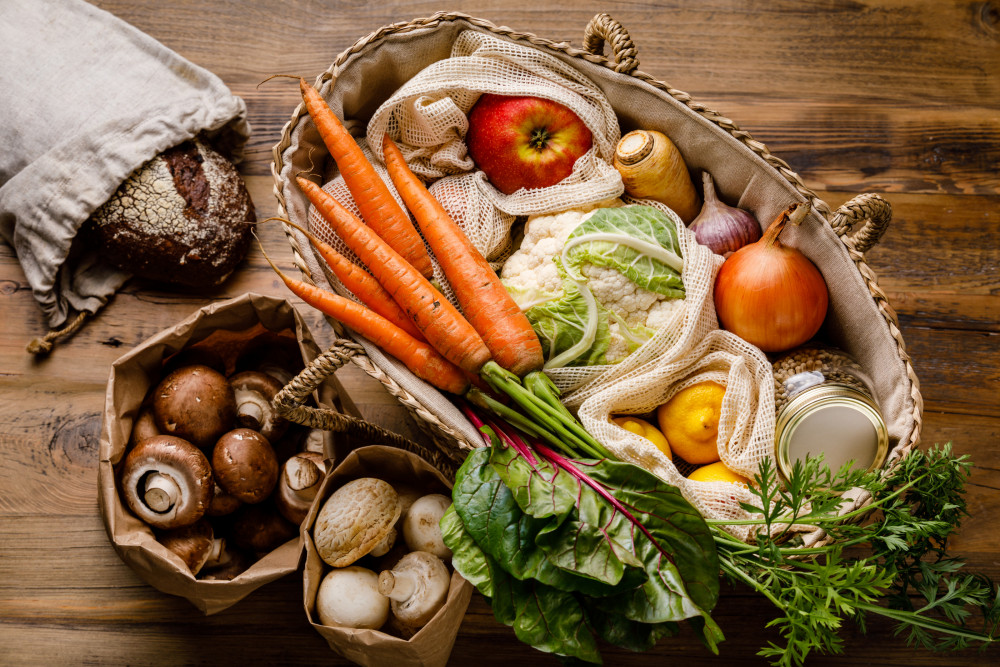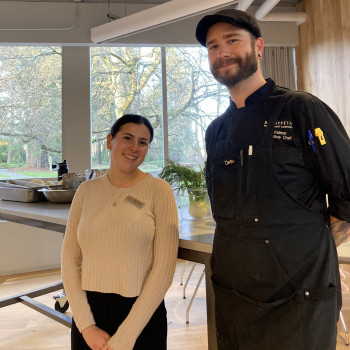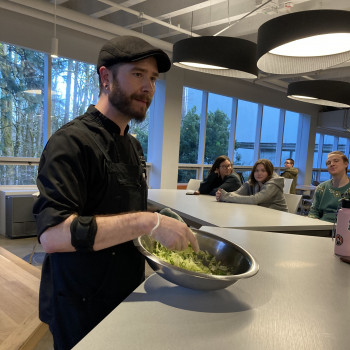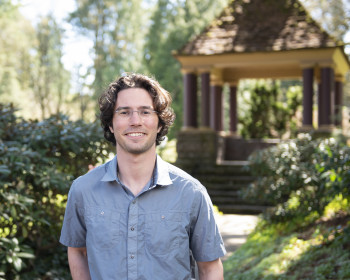Food Service Vendor Reflects L&C’s Commitment to Sustainability
Bon Appétit, L&C’s food service vendor, shared a presentation with undergrad and law students about its strategies and methods of sustainable food sourcing.

by David Oehler BA ʼ14
Lewis & Clark is an institution that is committed to sustainability, and the way we provide food to our community is no exception. It’s no surprise then that L&C works with Bon Appétit, a company with the same commitment.
Bon Appétit defines sustainable food as “flavorful food that’s healthy and economically viable for all, produced through practices that respect farmers, workers, and animals; which nourishes the community; and which replenishes our shared natural resources for future generations.”

- Supporting local producers. Food at Lewis & Clark is sourced as often as possible from “small, owner-operated farmers and artisans” from within 150 miles of the kitchen. They even host a map that displays local suppliers, such as A&J Orchards, Bui Natural Tofu, and Three Sisters Nixtamal.
- Sustainably sourcing seafood. Seafood at Lewis & Clark comes from sources designated as the best choices or good alternatives by the Monterey Bay Aquarium’s Seafood Watch.
- Prioritizing animal welfare. Bon Appétit utilizes a three-tiered system in deciding where they source products: “Supporting small farms, rewarding responsible mid-size ones, and using market power to influence big producers to improve practices.”
- Supporting the fight for farmworkers’ rights. Farmworkers, the people providing our country’s most integral service are also some of the country’s most exploited people. Bon Appétit supports the Coalition of Immokalee Workers’ Fair Food Program, which requires that food providers agree to a code of conduct regarding the treatment of their labor force.
- Reducing food waste. Wasted food is an enormous issue in the United States. Bon Appétit carefully tracks purchasing to ensure they don’t buy more of anything than is needed. They also adhere to the EPA’s Food Recovery Hierarchy, which guarantees that excess food will always be used to feed people, repurposed for industrial use, or composted before it is sent to the last resort, a landfill. Bon Appétit also aims to increase the proportion of plant-based proteins in their meals, ensuring that protein comes from sources with a much lower carbon footprint than food products like beef.

“The students at Lewis & Clark seem to really care about where their food is coming from and making positive food systems change,” says Swimmer. She encourages L&C students to investigate the Bon Appétit Management Company Fellowship Program, where they can learn more about how to pursue a career in food sustainability.
More Newsroom Stories
Public Relations is located in McAfee on the Undergraduate Campus.
MSC: 19
email public@lclark.edu
voice 503-768-7970
Public Relations
Lewis & Clark
615 S. Palatine Hill Road MSC 19
Portland OR 97219

